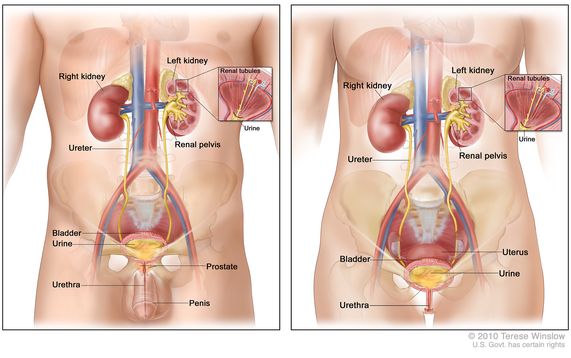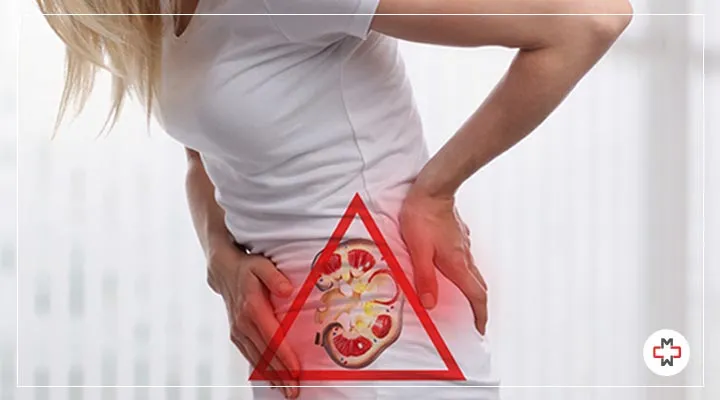Discovering Kidney Stones vs UTI: A Clear Review of Reasons, Signs And Symptoms, and Solutions
Discovering Kidney Stones vs UTI: A Clear Review of Reasons, Signs And Symptoms, and Solutions
Blog Article
Recognizing the Trick Distinctions Between Kidney Stones and Urinary Tract Infections: A Detailed Overview for Patients
Recognizing the differences in between kidney stones and urinary system system infections (UTIs) is important for people that may be experiencing comparable signs yet face greatly various wellness obstacles. While both conditions can manifest discomfort in the lower abdomen or back, their hidden causes, analysis techniques, and treatment protocols deviate dramatically. A nuanced understanding of these differences not just help in accurate self-assessment but additionally informs conversations with health care companies. As we discover these important elements, it becomes clear that acknowledging the distinct features of each problem can exceptionally impact individual outcomes. What might be the most effective technique to resolving these distinctions?
Review of Kidney Stones
The formation of kidney stones, a painful and often devastating problem, emphasizes the important significance of maintaining renal health and wellness. Kidney stones, additionally understood as kidney calculi, are solid masses that create from crystals in the pee. These stones can differ in dimension from a grain of sand to a golf round and can reside in any part of the urinary tract. The key sorts of kidney stones include calcium oxalate, calcium phosphate, uric acid, struvite, and cystine stones, each with distinct reasons and danger factors.
Numerous elements add to the development of kidney stones. Dehydration is a significant risk, as insufficient fluid intake can cause focused pee, advertising crystal formation. Nutritional habits, including high sodium and oxalate intake, can worsen the risk. In addition, metabolic disorders and particular medical problems may incline people to stone development.
Signs and symptoms of kidney stones can consist of severe flank nausea or vomiting, discomfort, and hematuria, which usually motivate urgent medical examination. Therapy alternatives vary, varying from boosted fluid consumption and nutritional alterations to clinical interventions such as lithotripsy or surgical removal, depending upon the dimension and place of the stones. Understanding these elements is necessary for effective avoidance and monitoring.
Overview of Urinary System System Infections
Urinary system tract infections (UTIs) stand for a common yet substantial health and wellness concern, impacting millions of individuals each year. These infections occur when bacteria go into the urinary system, which includes the kidneys, ureters, bladder, and urethra.
The danger variables for creating a UTI include sex, particular kinds of contraception, urinary system retention, and a history of previous infections. Individuals with damaged pre-existing conditions or immune systems, such as diabetes mellitus, may likewise go to greater risk. UTIs can be classified into 2 major types: complicated and straightforward. Uncomplicated UTIs are normally restricted to the bladder and are much more typical in healthy people, while complex UTIs may involve the kidneys and happen in those with underlying wellness issues.
Trigger medical diagnosis and therapy are important to prevent difficulties, such as recurrent infections or kidney damage (Kidney Stones vs UTI). Typically, UTIs are treated with antibiotics, and precautionary actions can be utilized for those with frequent events
Typical Symptoms Contrast
Signs of urinary system infections and kidney stones can usually overlap, leading to confusion in medical diagnosis. In comparison, kidney stones often tend to trigger extreme, sharp discomfort that emits from the back to the lower abdomen and groin, commonly described as colicky discomfort.
Additionally, UTIs may be accompanied by high temperature and chills, especially in much more severe instances, while kidney stones can lead to nausea and throwing up because of intense discomfort. Both conditions can result in blood in the pee (hematuria), but the existence of blood is a lot more frequently connected with kidney stones. While pain throughout peeing is a hallmark of UTIs, kidney stones typically provide with even more acute discomfort episodes, which might go and come. Understanding these sign differences can aid patients in acknowledging their problem, although clinical evaluation stays crucial for exact medical diagnosis and therapy.
Diagnosis Approaches
Exactly how can healthcare professionals properly differentiate in between kidney stones and urinary system infections? The analysis procedure begins with a detailed clinical history and a comprehensive review of the patient's signs and symptoms. Clinicians frequently perform a checkup, which may disclose inflammation in the abdomen or flank area, guiding the diagnostic path.
Research laboratory examinations play a vital role in differentiating in between these 2 conditions. Kidney Stones vs UTI. A urinalysis can identify the visibility of blood, crystals, or bacteria, which are a measure of either condition. In instances of urinary system tract infections, the urinalysis may show a considerable existence of leukocyte and nitrites, while kidney stones might present with specific crystals
Imaging studies, such as stomach ultrasound or computed tomography (CT) scans, are vital for imagining kidney stones. These imaging techniques enable doctor to evaluate stone size, location, and possible obstructions in the urinary system system. On the other hand, urinary system tract infections normally do not call for imaging unless complications are presumed.
With each other, these analysis techniques empower medical care professionals to properly identify and differentiate between kidney stones and urinary system tract infections, ensuring that individuals receive proper care and management.
Therapy Options and Avoidance
While both kidney stones and urinary system infections (UTIs) call for prompt therapy, their management methods differ substantially.
The therapy for kidney stones typically entails pain monitoring, hydration, and sometimes, medical treatments such as extracorporeal shock wave lithotripsy (ESWL) or ureteroscopy to damage or get rid of down stones. Clients are often suggested to enhance fluid consumption click to read more to facilitate stone flow and decrease reoccurrence. Nutritional modifications may likewise be required, relying on the stone kind.
In contrast, UTIs are mainly treated with prescription antibiotics to remove the microbial infection. The certain antibiotic suggested relies on the bacteria identified and local resistance patterns. Additional steps, such as boosted liquid consumption and urinary system analgesics, might assist alleviate symptoms.
Avoidance approaches vary also; for kidney stones, maintaining adequate hydration and sticking to nutritional limitations can be efficient. For UTIs, preventive approaches consist of correct health techniques, urinating after intercourse, and possibly preventative anti-biotics for recurring infections. Understanding these therapy and avoidance modalities is important for effective monitoring and to lessen the risk of complications linked with both conditions.
Conclusion

Comprehending the differences in between kidney stones and urinary system infections (UTIs) is necessary for patients who may be experiencing similar symptoms yet face significantly various health difficulties. The main kinds of kidney stones consist of calcium oxalate, calcium phosphate, uric acid, struvite, and cystine stones, each with unique reasons and threat factors.

Report this page